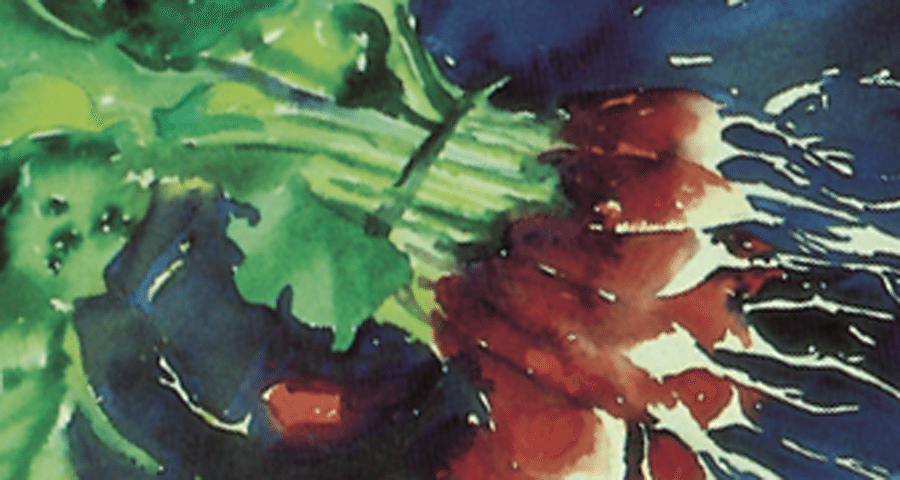
Healing With Whole Foods: Summer Fruits
Categories: Food & Nutrition Health & Healing
Summer is almost here, which means that fresh fruits and veggies will be in abundance. Aside from being refreshing and delicious, produce is packed with necessary vitamins, minerals, fiber, and enzymes. According to Paul Pitchford, from the perspective of Traditional Chinese Medicine (TCM), fruits also have remarkable healing properties that can help treat everything from heat stroke to hypertension. Generally, it’s best to buy organic vine- or tree-ripened fruits (or let those picked earlier rest at room temperature until they ripen). It’s easier to adapt to fresh, local, in-season produce than to eat fruit that traveled to you from far away, and eating locally enables you to support your local farms. As always, be wary of chemicals and pesticides—they seep in through skin and pith, negatively affecting the produce (and you!). According to Pitchford, fruit, in general, is cleansing, alkalizing, detoxifying, cooling, replenishing, beneficial for stress reduction and mental pressure, and stimulating to the liver and pancreas.
We’ve adapted a chapter from Pitchford’s Healing with Whole Foods below, highlighting fruits that all have neutral or cooling properties, so they’re perfect for summer. The following list itemizes key properties of selected fruit drawn from both Eastern and Western traditions (as well as modern nutrition). As always, be sure to check with your doctor or healthcare practitioner before using anything (even fruit!) for healing purposes, in case it’s contraindicated (particularly with grapefruit) or if you have an underlying condition.
Healing Properties of Fruit
Apple
- Cooling thermal nature
- Encourages fluid production, particularly moisturizing to the lungs
- Eases indigestion
- Detoxifies and cleanses
- Lowers blood sugar
Apricot
- Neutral thermal nature
- Moistens lungs
- Increases yin fluids
- Soothes dry throats, thirst, asthma, and other lung conditions
Avocado
- Cooling thermal nature
- Builds the blood and yin
- Harmonizes liver
- Lubricates the lungs and intestines
- “Brain food”
- Easily digestible
- High in monounsaturated oils
- Aids red blood cell formation due to its rich copper content
- High in protein
- Soothes ulcers
- Beautifies and purifies the skin
Banana
- Cooling thermal nature
- Lubricates intestines and lungs
- Treats constipation and ulcers
- Strengthens yin
- Eases thirst and dryness
- Partially ripened, useful in treating diarrhea, colitis, and hemorrhoids
- Detoxifying
- Eases sugar cravings during alcohol or drug withdrawal
- Effective for lowering blood pressure
Cherry
- Warming thermal nature
- Increases qi energy
- Tonifies the spleen-pancreas
- Prevents involuntary seminal emission
- Treats gout, arthritis, and rheumatism
- Eases numbness in the limbs
- Eliminates excess acidity
- Treats anemia
Fig
- Neutral thermal nature
- Influences the stomach and spleen-pancreas
- Moistens the lungs and large intestine
- Detoxifies
- Is helpful in treating boils and skin discharges
- Alkalizes
- Treats toothaches (when applied directly to gums)
Grape
- Neutral thermal nature
- Increases qi energy
- Builds and purifies the blood
- Improves cleansing of the glands
- Treats rheumatism and arthritis
- Is a diuretic
Grapefruit
- Cooling thermal nature
- Aids digestion
- Increases appetite
- Sobering
- Alleviates intestinal gas, pain, and swelling
- Stimulates peristalsis
- Strengthens the gums, arteries, and circulation
Cautions: Individuals with signs of dryness and/or deficiency, including the deficient yin syndrome, should use citrus seed extract sparingly.
Lemon and Lime
- Cooling thermal nature
- Antiseptic
- Is perhaps the most valuable fruit therapeutically for people who have eaten a high-fat/protein diet
- Antibacterial
- Purifies the breath
- Antimicrobial
- Useful for dysentery, colds, flus, hacking coughs, and parasitic infections
- Promotes weight loss
- Detoxifies the blood
- Improves absorption of minerals
- Applied externally, alleviates itching from bug bites
Mulberry
- Cooling thermal nature
- Builds the yin fluids
- Moistens the lungs and gastrointestinal tract
- Strengthens the liver and kidneys
- Beneficial for anemia
- Treats constipation from fluid dryness
- Treats ulcers, diabetes, dry cough, tinnitus, and poor joint mobility
Orange
- Cooling thermal nature
- General tonic for weak digestion and poor appetite
- Regenerates body fluids
- Helps cool and moisten those who are dry and overheated from disease processes, physical activity, or hot weather
- Valuable for inflammatory, highly acidic diseases such as arthritis
- Help lowers high fever
Papaya
- Neutral thermal nature
- Tonifies the stomach
- Acts as a digestive aid
- Moistens the lungs
- Alleviates coughing
- Used for treating dysentery, indigestion, mucus excesses, and the pain of rheumatism
- Treats intestinal worms
Peach
- Cooling thermal nature
- Builds body fluids
- Moistens the lungs and intestines
- Used for dry cough and other dry conditions of the lungs
- Lowers blood pressure
- When cooked and pureéd, treats acute intestinal inflammation
Pear
- Cooling thermal nature
- Eliminates heat and excess mucus, specifically in the lungs
- Stops coughing
- Treats dry throat
- Used for diabetes, injuries to the skin, constipation, loss of voice, and gallbladder inflammation and obstruction.
Caution: Not for those with deficient digestive fire. Symptoms include loose or watery stools, signs of coldness, and a swollen, pale tongue.
Persimmon
- Very cooling thermal nature
- Cools heat, especially lung heat
- Builds body fluids, moistens the lungs and resolves phlegm
- Tonifies the spleen-pancreas
- Soothes mucous membranes in the digestive tract to relieve gastrointestinal inflammations
- The astringent property of partially ripe persimmon is desirable in treating these conditions: diarrhea, dysentery, hypertension, and spitting up, coughing up, or vomiting blood.
Pineapple
- Neutral thermal nature
- Removes summer heat
- Thirst-quenching
- Diuretic
- Treats sunstroke, indigestion, anorexia, diarrhea, and edema
Caution: Not to be used by those with peptic ulcers or skin discharges.
Plum
- The purple variety is slightly cooling, while the yellow varieties tend to be neutral
- Builds body fluids
- Used for liver diseases and diabetes; stewed prunes are a traditional remedy for constipation and are especially beneficial when excess liver and heat signs are present.
- Treats cirrhosis of the liver, hardened or expanded liver conditions in general, and dehydration
Cautions: The plum is not good for people with delicate digestion or gastrointestinal ulcers or inflammations.
Pomegranate
- Used as a remedy for bladder disturbances
- Destroys worms in the intestinal tract
- Stengthens gums
- Soothes ulcers of the mouth and throat
Raspberry
- Neutral thermal nature
- Benefits liver and kidneys
- Enriches and cleanses the blood of toxins
- Regulates the menstrual cycle
- Controls urinary functions
- Treats anemia, as well as excessive and frequent urination, especially at night
- Can be used to induce and promote labor at childbirth
Strawberry
- Cooling thermal nature
- Benefits the spleen
- Benefits the spleen-pancreas
- Improves appetite
- Moistens the lungs and generates body fluids
- Used for thirst, sore throat, and hoarseness
Watermelon
- Very cooling thermal nature
- Removes heat, including summer heat problems
- Builds body fluids
- Diuretic
- Moistens the intestines
- Used to treat thirst, urinary difficulty, edema, canker sores, depression, and kidney and urinary tract inflammations such as nephritis and urethritis
Caution: Not to be used by those with weak digestion, anemia, or excessive or uncontrolled urination. The seeds of watermelon benefit the kidneys and act as a general diuretic.




